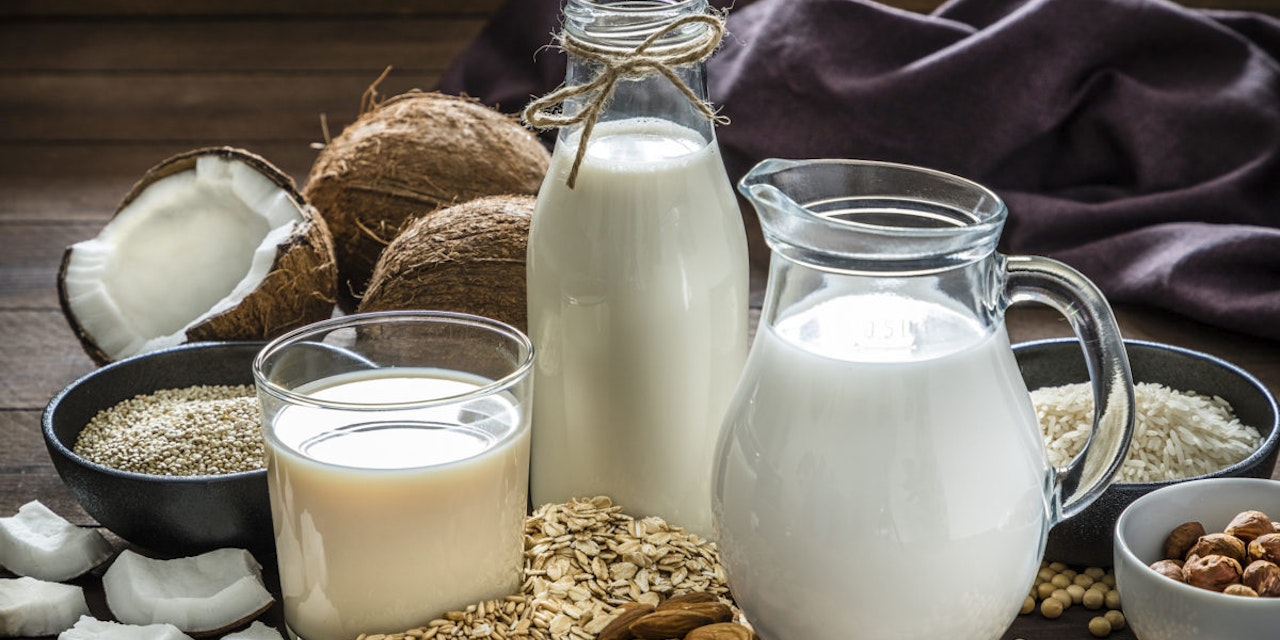3 Alternative Milks and Their Pros and Cons
Almond milk Made by: Soaking the nuts in water overnight, blending them with water, salt, and any other additions, and then straining the mixture…
- Published: 4/22/2020
- Categories:
- 2 min. read

- Published: 4/22/2020
- Categories:
- 2 min. read
A glass of whole fat cow’s milk contains 149 calories, 7.7 g of protein, 12.3 g of sugar, and 8 g of fat. Cows milk is recommended by experts because of its calcium content (which is good for bones), it’s B12 content, (which helps with prevention of anemia and stronger bones), and it’s B2/riboflavin. Add to that the fact that it’s fairly cheap and widely available, and it can be hard to figure out why anyone would ever not want to buy it.
The thing is, well, there are a lot of reasons. For some, it’s lactose intolerance; for others, it’s veganism; and for others still, it’s overall health. Some of our bodies don’t respond as well to dairy as others do.
So if you can’t do cow’s milk, what do you get instead? Here are just a few alternative mills and how they stack up:
Almond milk

Made by: Soaking the nuts in water overnight, blending them with water, salt, and any other additions, and then straining the mixture.
Nutrients in a cup (store-bought)
39 calories
1 g of protein
3 g of fat
24% of the daily recommended amount of calcium
Pros: Easy enough to make at home!
Cons: Pricey. Almonds aren’t cheap, and if you decide to buy instead of making at home, 32 fl can cost you at least $2, versus a gallon (x4 the amount!) of cow’s milk for the same price.
Oat milk

Made by: Blending for 30 seconds up to a minute along with water and salt, and then straining carefully.
Nutrients in a cup (homemade):
58 calories
1.5 g protein
0 g fat
2% the daily recommended amount of calcium
Pros: Very cheap to make, and doesn’t require an industrial strength blender to achieve good results.
Cons: Tastes like oats. Very much so. So if you aren’t into that, it’s best to either opt for one with additional flavors or choose a different type of milk entirely.
Coconut milk

Made by: You guessed it, blending! A lot of homemade coconut recipes call for shredded coconut, water, and the sweetener of your choice in a blender. Strain and store.
Nutrients in a cup (store-bought):
552 calories (yes, you read that right!)
5 g of protein
57 g fat
3% of the recommended daily amount of calcium
Pros: This is a homemade milk that heats well – drinkers of homemade oat milk typically complain that the consistency changes when it is heated; coconut milk is great hot or cold.
Cons: Crazy high in calories. If you’re trying to lose weight, this might not be the milk for you.
Summary
Before you go, here are a few important things to remember:
- Homemade will almost always be lower in calories
- You have to be mindful of flavor – alternative mills tend to have a stronger flavor profile
- One size doesn’t fit all- some milks are better for baking, others for coffee, others for drinking cold with a cookie
Sources:
All of the content and media on Lifesum is created and published for information purposes only. It is not intended to be used as a substitute for medical advice or treatment. Users should always consult with a doctor or other health care professional for medical advice. If you have or think you are at risk of developing an eating disorder, do not use the Lifesum app and seek immediate medical help.